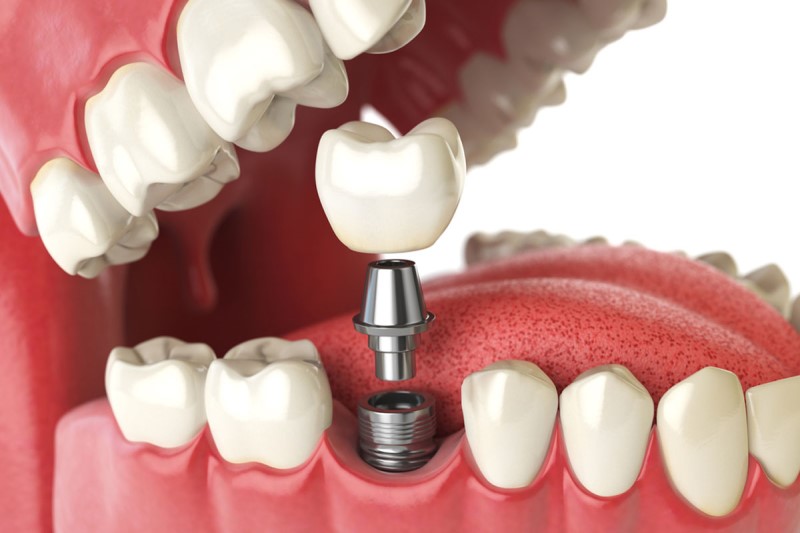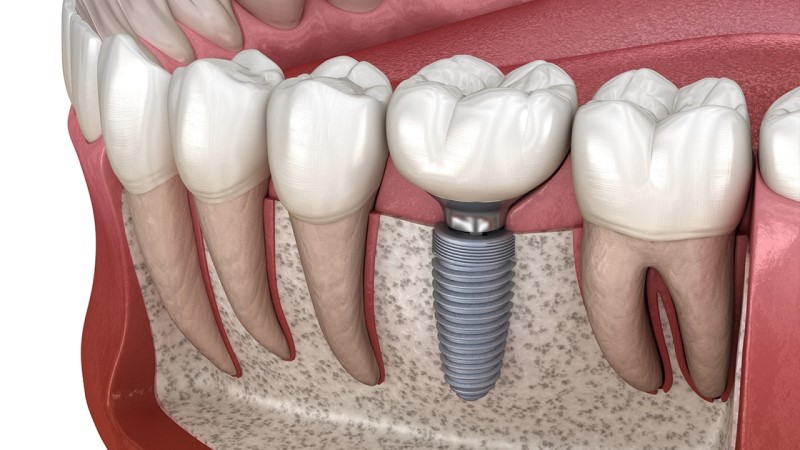Experiencing ear pain after a dental implant procedure can be unsettling. However understanding the potential causes and how to alleviate this discomfort is essential for a smoother recovery.
In this post, we will explore whether dental implants can cause ear pain and provide valuable insights on addressing and alleviating this symptom effectively.
Can dental implant cause ear pain?
While it is relatively uncommon, dental implants can, in some cases, lead to referred ear pain. Referred ear pain is when discomfort in the mouth or jaw area is felt in the ear. This can happen due to the close proximity of dental structures to the ear.
Common causes of referred ear pain after a dental implant procedure include inflammation, nerve irritation, or muscle tension in the jaw area. If you experience ear pain after getting a dental implant, it’s essential to consult your dentist or oral surgeon to determine the underlying cause and develop an appropriate treatment plan.

Treating ear pain after dental implants
Addressing ear concerns following dental implant surgery involves a systematic approach to identify and manage the underlying causes of discomfort. Here are some steps to consider:
- Consult Your Dental Professional: The first and most crucial step is to reach out to your dentist or oral surgeon. Describe your ear pain and any other symptoms in detail. They will perform a thorough examination to determine if the pain is related to the dental implant surgery or if there might be another issue.
- Assess Dental Implant Placement: The dental professional will review the placement of the implant to ensure it is correctly positioned and not causing undue pressure on nearby nerves or structures. Adjustments may be made if necessary.
- Manage Inflammation: Inflammation is a common cause of referred ear pain. Your dentist may recommend anti-inflammatory medications or cold compresses to reduce swelling in the surgical area.
- Monitor Healing: Continue to follow the post-operative care instructions provided by your dentist. This includes maintaining good oral hygiene, avoiding certain foods, and refraining from strenuous activities. Proper healing can alleviate many post-surgery symptoms.
- Jaw Muscle Relaxation: If muscle tension in the jaw is contributing to ear pain, techniques such as jaw relaxation exercises, warm compresses, or muscle relaxants may be recommended.
- Follow-Up Appointments: Attend all follow-up appointments with your dentist or oral surgeon to monitor your progress. They can assess whether the ear concerns are improving and adjust the treatment plan accordingly.
- Consult an Ear Specialist: If the ear pain persists and is not related to the dental implant surgery, your dentist may refer you to an ear, nose, and throat (ENT) specialist for further evaluation.
- Pain Management: If the ear pain is severe, your dentist may prescribe pain medications or recommend over-the-counter pain relievers to help manage discomfort during the healing process.
Remember that addressing ear concerns following dental implant surgery should always be done under the guidance of your dental professional. They can accurately diagnose the issue and recommend the most appropriate treatment to ensure your comfort and a successful recovery.

Complications after dental implants
Dental implant surgery is generally safe and has a high success rate, but like any surgical procedure, it can come with potential complications. Some of the other possible complications of dental implant surgery include:
- Infection: Infection at the surgical site is a risk, although it’s relatively uncommon. Good oral hygiene and following post-operative care instructions can help reduce this risk.
- Nerve Damage: In rare cases, dental implant surgery can damage nearby nerves, leading to numbness or tingling in the lips, chin, or tongue. This is usually temporary but can sometimes be permanent.
- Bone Loss: In some cases, bone loss around the implant can occur, affecting the implant’s stability and long-term success. Proper implant placement and good oral care can help prevent this.
- Implant Failure: Although uncommon, dental implant failure can occur. This may be due to factors like inadequate osseointegration (the fusion of the implant with the jawbone), infection, or other complications. Failed implants need to be removed and replaced.
- Gum Recession: Over time, gum recession around the implant can expose the metal post, which may affect the appearance and stability of the implant.
- Sinus Issues: For implants placed in the upper jaw, there is a risk of sinus complications, such as sinusitis or a perforated sinus membrane, if the implant penetrates the sinus cavity.
- Allergic Reactions: While rare, some individuals may experience allergic reactions to the materials used in dental implants, such as titanium or certain types of metals.
- Prosthetic Complications: Issues with the implant’s prosthetic components, like crowns or bridges, can occur, requiring adjustments or replacements.
- Pain and Swelling: Temporary pain and swelling are common after surgery, but prolonged or severe discomfort may indicate complications and should be addressed promptly.

Final thoughts
In conclusion, dental implant surgery can be a highly effective solution for replacing missing teeth and restoring your smile. If you’re considering dental implant surgery, consult with your dentist to determine if it’s the right option for you and embark on your journey toward a healthier, more radiant smile.
If you need any help, please call our helpline at 028 3920 9969 or 096 779 7799. In case you reside in Vietnam, Platinum Dental will be helpful to assist you in selecting the best smile therapy. Can’t wait to work with you!
- Location: 127 Nguyen Cu Trinh Street, District 1, Ho Chi Minh City
- Time: 8:00 – 20:00 (Monday – Saturday)
- Number: 028 3920 9969 – 096 779 7799


